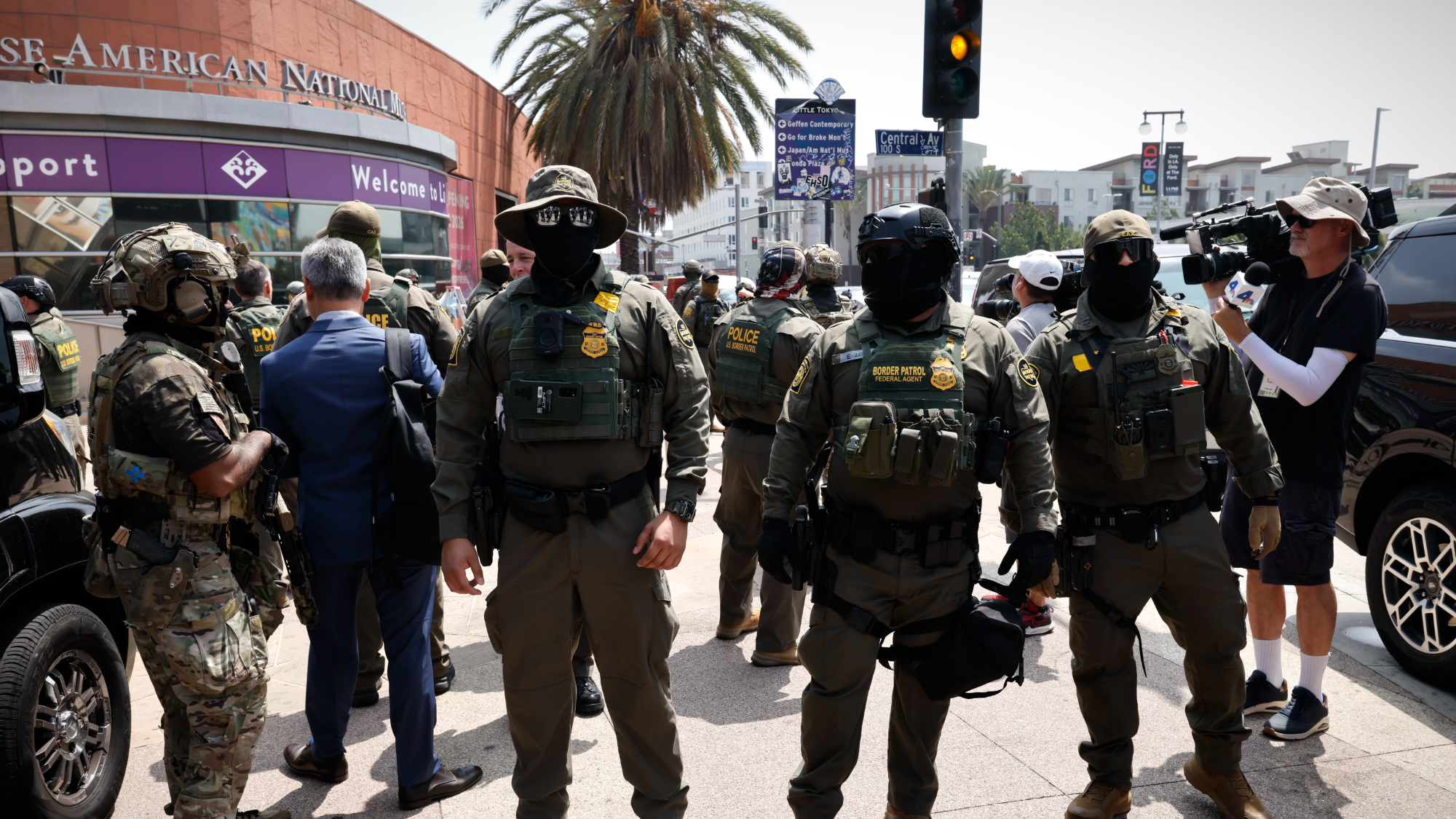The media's dubious about-face on coronavirus risks
It's time to stop gaslighting people about this pandemic


A free daily email with the biggest news stories of the day – and the best features from TheWeek.com
You are now subscribed
Your newsletter sign-up was successful
If a ludicrous media consensus is abandoned overnight, did it ever really exist? This is a question many of us have been asking ourselves for nearly two decades about the Iraq war, which practically no one is willing to defend these days.
In 2003 the situation was very different; that Saddam Hussein had acquired "weapons of mass destruction" (what sort was neither clear nor especially important) and willing to employ them (from half a world away, against the world's most powerful military) was not seriously questioned by The New York Times, The Washington Post, CNN, or indeed any organ of public opinion save for a handful of blogs and the then-newly founded American Conservative magazine. The handful of dissidents were reviled as dumb hippies or "unpatriotic conservatives"; the terms of the debate, such as it was, were personal, not empirical.
We all know what happened. There were no weapons, nor, it soon became clear, had there ever been any good evidence for believing otherwise. And millions of ordinary Americans found themselves asking why they should believe anything they had read in newspapers or seen on television.
The Week
Escape your echo chamber. Get the facts behind the news, plus analysis from multiple perspectives.

Sign up for The Week's Free Newsletters
From our morning news briefing to a weekly Good News Newsletter, get the best of The Week delivered directly to your inbox.
From our morning news briefing to a weekly Good News Newsletter, get the best of The Week delivered directly to your inbox.
Iraq remains, at least for now, the single most consequential example of our general epistemic crisis. The rule of our failures to separate truth from falsehood and determine public policy accordingly is that the bigger the issue, the less likely we are to get it right. There is an inverse relationship between the amount of attention given to a particular topic of public debate and the likelihood that our response to it is carefully thought out.
One would hope at the very least that when elite opinion has coalesced around a premise that is proven wrong — Clinton-era crime legislation, free trade, Iraq, Donald Trump's electability, lunatic fantasies about the latter being a Russian asset — the corresponding public reckoning with our failures would have a similar scope. Those who were responsible for disseminating what in any other circumstances would be called "misinformation" or worse should at the very least offer a mea culpa, one that involves both an account of what led to their mistaken reasoning and a public avowal to exercise better judgment in the future. But nothing of the kind ever happens. Instead, the response to the breakdown of a consensus is either goalpost shifting ("Trump wasn't working for the Russians — but some of his associates did make minor timeline-related errors in their public testimony!") or, worse, a stark insistence that the truth has been known all along.
The best recent example of this phenomenon is the speed with which journalists and politicians have accepted that there was no meaningful risk of outdoor transmission of the novel coronavirus. Information from abroad released months ago indicated this was likely the case, and it appeared plausible from the very beginning, based on what we already know about the relationship between poor ventilation and sunlight in the transmission of similar infections. But even two weeks ago parents who allowed their children to go down slides or play soccer in parks were Typhoid Mary. The lines of people waiting to vote in Wisconsin's primary election were going to be a bloodbath. People who took to the streets to protest lockdown measures (such as bans on the sale of paint and garden gnomes) were not only spreading the virus, they were themselves ensuring that the lockdowns would have to continue even longer. Protesters were suicidal, and protest itself inherently racist because it was likely to increase the number of infections in African-American communities.
All of this conventional wisdom was displaced instantaneously after the murder of George Floyd in Minneapolis. People who had spent months insisting that public beaches were death pits suddenly declared 11 p.m. curfews meant to prevent the destruction of property an intolerable restriction upon the rights of protesters who had previously been subject to strict shelter-in-place orders. What had been a mostly secure consensus about the importance of maintaining lockdowns was replaced with a new meta-ethical debate about police response to the hundreds of thousands of people currently flouting social distancing norms. While a handful of observers have at least admitted that they expect outdoor protests to exacerbate the spread of the virus, many of them accept this as a perfectly reasonable risk. But even this concession is premised upon the admission that the virus itself is a far less serious threat than most of us had ostensibly believed. Dodges about police treatment of African Americans being a public health crisis in its own right fly in the face of the reality that the lockdowns have left roughly half of black adults without a job only months after the black unemployment rate reached the lowest level ever recorded. Either way, if you support the protests, you have changed your mind radically in the last two weeks.
A free daily email with the biggest news stories of the day – and the best features from TheWeek.com
The about-face on the subject of outdoor transmission is only the latest example of media gaslighting about the virus. As late as the beginning of April, the wearing of masks was universally condemned as irresponsible by all right-thinking persons. Only a few weeks later the lunatic self-aggrandizing intensity with which the consensus was announced remained the same. Only the comparatively minor issue of what was actually being advocated — in this case, the wearing of masks — had changed.
None of this should be taken as an argument against the recent protests, in which I have myself taken part with my family. It is simply an acknowledgement that in our public debate about the virus and the lockdown, we should have been more nuanced, more attendant to the goods we thought we would be willing to sacrifice in the name of a dubious understanding of safety. If protesting police brutality is more important than minimizing the possibility of infection, so are a good many other things.
Want more essential commentary and analysis like this delivered straight to your inbox? Sign up for The Week's "Today's best articles" newsletter here.
Matthew Walther is a national correspondent at The Week. His work has also appeared in First Things, The Spectator of London, The Catholic Herald, National Review, and other publications. He is currently writing a biography of the Rev. Montague Summers. He is also a Robert Novak Journalism Fellow.
-
 Catherine O'Hara: The madcap actress who sparkled on ‘SCTV’ and ‘Schitt’s Creek’
Catherine O'Hara: The madcap actress who sparkled on ‘SCTV’ and ‘Schitt’s Creek’Feature O'Hara cracked up audiences for more than 50 years
-
 Judge rejects California’s ICE mask ban, OKs ID law
Judge rejects California’s ICE mask ban, OKs ID lawSpeed Read Federal law enforcement agents can wear masks but must display clear identification
-
 Lawmakers say Epstein files implicate 6 more men
Lawmakers say Epstein files implicate 6 more menSpeed Read The Trump department apparently blacked out the names of several people who should have been identified
